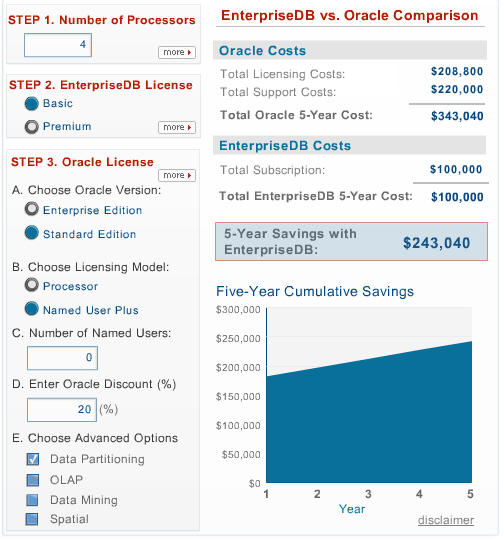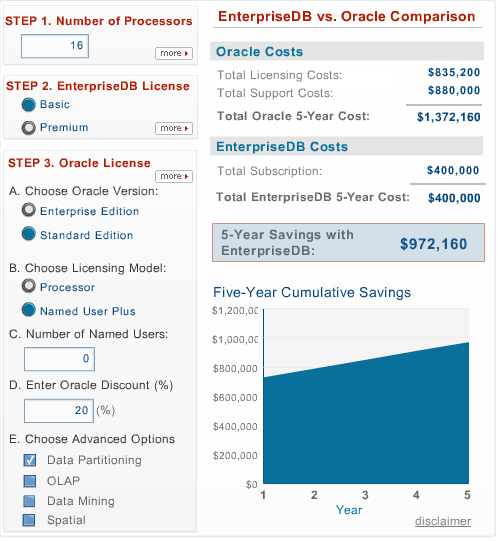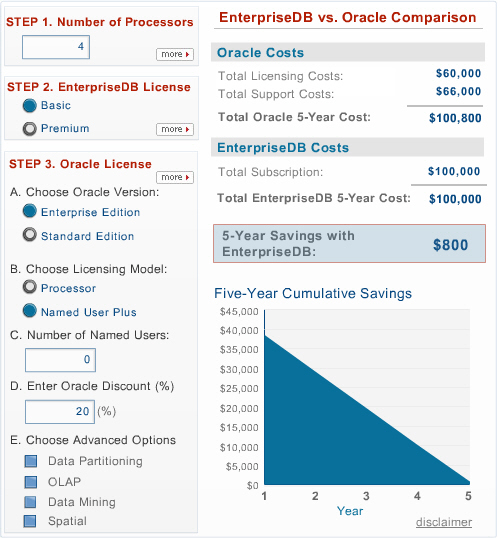EnterpriseDB has introduced a new feature called the ROI Calculator. The calculator allows you to enter an Oracle configuration and compare the cost to an equivalent EnterpriseDB cost. You can even add extras like the partitioning option, OLAP, Data Mining and Spatial. A nice addition is the ability to enter a discount for Oracle. Most organizations get at least a partial discount on their purchases. The ROI also includes a 5 year support cost which somewhat skews the results (but in a direction you will likely go anyway).
I played with several configurations to see how they compared. I started with a fairly common configuration, 4 CPU Enterprise Edition with Partitioning. I included a 20% discount for Oracle.
Even though I know that EnterpriseDB is a lot cheaper to license, I was somewhat surprised at the difference in this configuration: $428,800 for Oracle vs 100,000 for a difference of $328,800. Remember this is over 5 years.

I entered the values for a little bit more robust configuration but one that is still not totally unusual: 16 CPU EE with Partitioning and a 20% discount. The numbers are even more dramtic: $1,372,160 for Oracle and $400,000 for EnterpriseDB for a difference of $972,160. That's almost a million dollars over 5 years and that's with a 20% discount on Oracle.

Finally, I tried it with a very basic configuration: 4 CPU Standard Edition, no partitioning and a 20% discount. The totals: $100,800 for Oracle and $100,000 for EnterpriseDB. Much closer. In this configuration, you lose the ability to partition in Oracle (you can partition in all configurations of EnterpriseDB), but you gain RAC (included in an SE license without an extra cost).

All of these EnterpriseDB prices include the premium support costs. The differences are even more dramatic if you choose Basic support over the Premium support offering. A premium support license for 4 CPUs is $100,000 (over 5 years) where as a basic support is only $30,000. The same comparison with 16 CPUs is $400,000 for premium and $120,000 over 5 years.
All in all, this ROI calculator shows that significant savings can be made. You still need to verify that EnterpriseDB is compatible for your applications.
oracle enterprisedb roi








